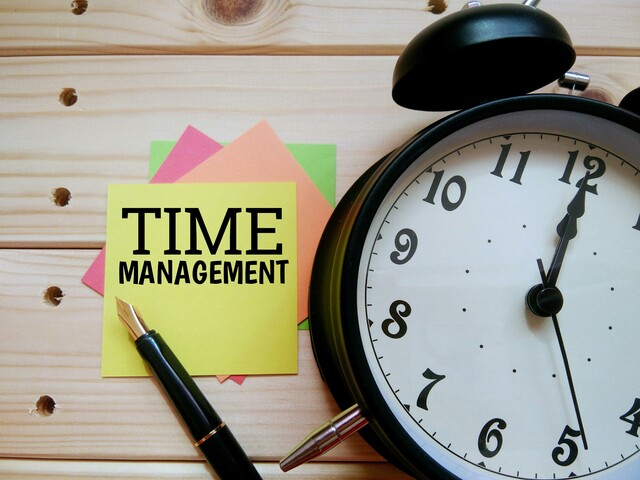There's not much that can be done in procurement management without the use of some kind of supplier. They are one of the key components of procurement and that means that they are a necessity no matter what practices you use. Every version of the procurement process mentions working with suppliers, but what does that actually entail? Is it just interacting with them as part of a transaction or is there more to it? The efforts that are commonly needed to find them suggest that it is likely the latter and that there is a right and wrong way.
This article will focus on the suppliers a procurement team works with. Topics will include the types of suppliers that you would typically encounter and how to go about finding on that is right for your team. There will also be information on how to develop a relationship with your supplier(s) and what to do when it's time to part ways.
-
Wholesale Distributors--Wholesalers are normally the ones who purchase their own products to distribute to their clients. If a business is buying something in bulk, it's usually from a wholesale distributor. They can sell directly to other suppliers who need their goods in order to create their own, e.g. a manufacturer who needs the ingredients or materials for their products. Likewise, some of the products a wholesaler offers come from other suppliers as well--e.g. the finished product from a manufacturer. It's possible that a wholesaler may fall into multiple supplier categories based on their operational habits.
-
Manufacturers--Manufacturers are the suppliers who actually have made the product you are procuring from them. This can also include refiners who take raw material and transform it into a usable format--crude oil into gasoline, plastics, etc. or ore into metal are just a few examples. Simply making the parts that make up a product--e.g. car mufflers--that are then sent to another manufacturer who assembles the final product. Other manufacturers create the products in their entirety that go directly to the retailers or wholesalers who sell it to the customer.
-
Import/Export--Import/Export suppliers are usually any kind of supplier who operate internationally. They can obtain goods or materials that are found in foreign markets and then provide them to other foreign markets. It is possible for a company to simply do this on their own without the need for someone else to do it for them, but there is some benefit to using an import/export supplier as a middleman. These supplier often are deeply familiar with the legalities surrounding international trade and the foreign markets they work with. That knowledge helps you avoid costly mistakes from being made and the problems that often go with them.
-
Independent Craftsmen--These are unique suppliers with unique products, usually things that they made themselves that won't be found elsewhere. The items are made on a small scale, so it can be difficult or time consuming to get something in a large quantity. Independent craftsmen can distribute their products on their own, or with the assistance of a retail agent or special event (e.g. trade show). As with the other supplier types, some aspects of a craftsmen's operations will often fall into multiple categories while still predominately applying to a specific one.
Choosing The Right Supplier
Since there's such a variety of suppliers out there--not just in terms of category, but also the sheer number of those in operation--it can be a bit overwhelming finding the right one. You want to make sure that you're getting someone who is going to want to cooperate with you and will be able to provide you with what you need. Depending on factors such as location and product(s), it can be a bit difficult to track someone down. To make things easier, take into account the following:
-
Consider Your Goals--Creating goals isn't just so you have something to aim for; they can impact what your options are. You have an idea of what you want so why not use it as your guide? There are going to be certain suppliers who will be able to help you achieve their goals or at least positively contribute to them. Find the one that can do that the best compared to their competitors.
-
Requirements and Restrictions--That same information that you used to create your goals can be used to generate a series of requirements that you want potential suppliers to have. Things like product offerings, location, business practices, and additional services that a supplier can provide. Such factors can be helpful to what you want to achieve in your relationship with the supplier and for your own goals. You will also want to have some restrictions in place, specifically things that would disqualify an option. An example would be practices that contradict your code of conduct or are questionable in some way.
-
Total Cost--It's likely that you'll have a budget that limits your options in some way. Not a bad thing, per se, but it can be a problematic restriction. Taking into account the total cost that would come with a supplier--not just the products you're purchasing, but any additional fees that they have (e.g. shipping)--can help. You don't want to saddle yourself with supplier that meets every other requirement on your list, but will ultimately bankrupt you after a few transactions. It's why it's so important to get something like an RFP/RFQ before signing on for anything.
-
Industry Resources--Whether it's the procurement industry or the industry that the business you're procuring for, there are some professional resources that can help you find and choose a supplier. Networking can open up several doors to resources and information regarding those resources. You can get referrals from industry peers who've worked with or used a supplier's services. Information about reputations, good and bad, can be found easily through networking. Connections open up the right channels to get a deal or contact an option you might not have considered/found on your own. If you have those industry resources, use them.
-
The Internet--In the age of technology, you can find just about anything online. An internet presence is a necessary component in today's economy and most suppliers depend of the internet to connect with potential customers. A simple internet search by product and/or location can help bring up dozens of options with the opportunity to learn more information about them. Industry networking can also be done online, as there are websites for organizations, directories, and forums specific to procurement and the different supplier types. Depending on how specific you are in your search, using the internet can be the fastest way to find what you're looking for.
Once you find a supplier and have contracted their services, you need to maintain a working relationship with them. This simply keeps things healthy between parties and ensures that everyone is working well together. It's not really ideal, after all, for things to turn nasty with someone you're obligated to work with due to a contract. Some tips to help keep that working relationship on good terms:
-
Put in the Effort!--It's unfortunately common for people to do all of that work to create the relationship only to let it waste away into nothing. Just because you got the relationship with the supplier doesn't mean the work is done; you have to put in the same amount of effort into keeping the relationship as you did to get it. If you don't work for what you want, you won't actually get it.
-
Communication and Documentation--Relationships of any kind need good communication in order to thrive. Clearly expressing what you want helps prevent misunderstandings and keeps both sides happy. Because there can be a lot going on in the relationship with a supplier and with your conversations/requests, you want to make sure that you're documenting things as well. This can help with instances where someone wasn't clear or if there was a miscommunication, and can prevent fighting and a breakdown of the relationship.
-
Adhering to Agreements--At the onset of a supplier relationship, there are usually terms set in place. This can be a formal contract or an agreement regarding services. Whatever the case, you want to make sure that you are doing your part to adhere to what has been agreed upon and that you are not acting against it. It's understandable if circumstances call for some degree of deviation, but neither side should go completely off-book. Get things in writing and make sure all parties have an accurate version of the agreement that is in place.
-
Following Codes of Conduct--Both sides are going to have their own codes of conduct that they are going to bring into the relationship. They're not going to be identical, but they should at least be similar enough to allow for cooperation and collaboration. Adhering to your own code of conduct can help prevent you from doing something that is harmful to the relationship, e.g. something that goes against the agreed terms or that is unethical.
When To Make A Change
Not all supplier relationships go well, and there can be some red flags that signal that it is time to make a change. Some of these warning signs can be subtle and difficult to pick up on if you're not looking closely enough. Others can be glaringly obvious and should be addressed immediately. Many of the same signs can appear when searching for a supplier, and should be treated in the same way. A few of them include:
-
Unreliability--Unexplained issues with orders can suggest that your supplier isn't as reliable as they made themselves out to be. Late shipments, damaged goods, incorrect or incomplete orders, or anything other errors are just a few of the things to look for. It may be understandable if it happens maybe once or twice and isn't a regular thing--emergencies happen and there's only so much that can be controlled. Frequently being unreliable and making mistakes, however, should not be tolerated.
-
Questionable Activity and Behavior--Any behavior or actions that deviate from the norm--especially if it's not something that they've done before--could be a sign that something's wrong. Suppliers who skip steps or try to skirt standards/requirements are often viewed as questionable in the legal sense. They may be trying to do something borderline illegal in order to get a bigger payout or they're doing something that could actually be illegal and are trying to not get caught. Some suppliers who scam their clients may act legitimate in order to get customers, only to change once a contract is signed and it's too late to do anything to stop them.
-
Costliness--There's the potential for hidden or unadvertised fees with any service, regardless of industry. The fine print in a contract or agreement may allow a worrisome supplier to become costly in the long run. Things like monthly fees for their service or sudden increases in pricing without clear explanation. Everything else could be great--the service, the products, the quality--but it might not be worth it if the supplier is nickel-and-diming you to death with unwarranted costliness.
-
Progress--Your relationship with the supplier should grow over time; it allows both of you to keep up with economic standards and demands. When things don't progress and instead stagnates, neither side is really going to benefit from the relationship and will likely experience problems as a result. It may simply be because there's not enough effort being put in from either side, but if nothing changes no matter what you do then it's probably time to move on. There's always the possibility that both sides just don't work as well together as they thought and nothing is going to come of it by trying to force it.
























